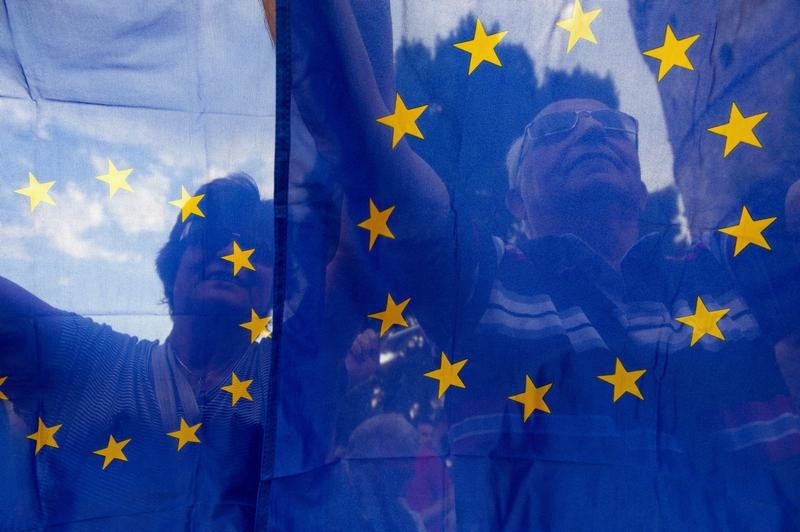This post was originally published on this site
https://i-invdn-com.akamaized.net/news/LYNXNPEB7D0CT_M.jpg
In an emergency teleconference that lasted more than 16 hours, finance chiefs couldn’t reconcile their contrasting visions for the steps needed to help European economies recover, as countries led by France and Europe’s hardest-hit south were pitted against Germany and other hawkish northern states over the need to issue joint debt.
A new call is now scheduled for Thursday.
Two officials familiar with the discussion said the main reason for the breakdown on Tuesday was a dispute between the Netherlands and Italy over the conditions attached to the potential use of credit lines from the euro area’s bailout fund to finance the spending spree needed to cushion the pandemic’s blow. Ministers also sparred over the wording of a joint statement hinting at the possible issuance of joint debt to finance the response.
The ministers had been tasked by EU leaders to come up with a toolkit of measures to address the economic impact of the pandemic by the end of this week. But even as the virus continued to engulf their economies and medical systems they were unable to move past traditional dividing lines, putting in question the next steps in the continent’s efforts to manage a looming recession.
With the euro area facing an economic slump of unprecedented scale, nations have instituted fiscal measures worth 3% of the EU gross domestic product as well as liquidity guarantees worth 18% of the bloc’s output. The European Central Bank has also launched massive bond purchases in what could end up becoming the biggest economic rescue package the continent has seen in peacetime. But few believe that’s sufficient.
And the stakes couldn’t be higher. Last week, IHS Markit said its monthly measure of services and manufacturing in the euro area points to an annualized economic contraction of about 10%. And that’s on top of job losses that are mounting across Europe, with Spain showing a record jobless-claims surge.

